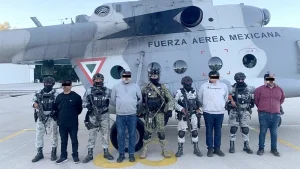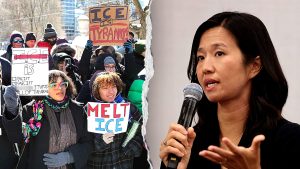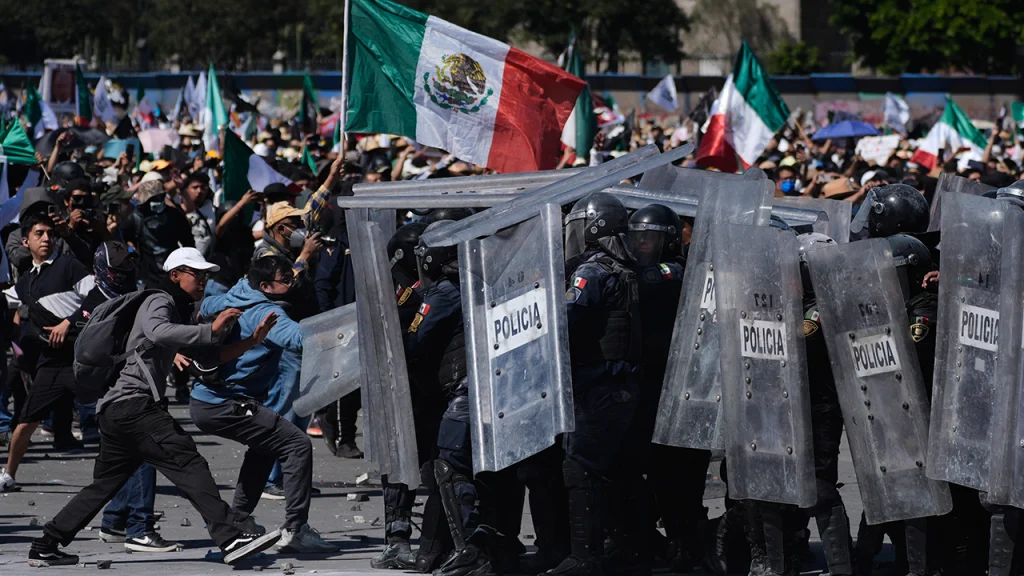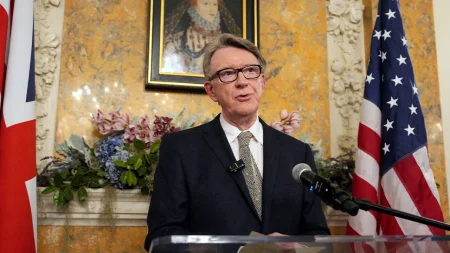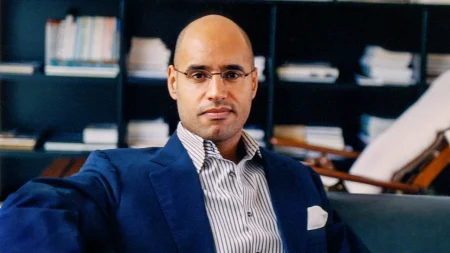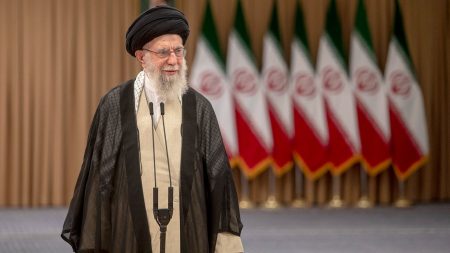Violence Erupts as Thousands Protest in Mexico City
In a striking display of civil unrest, Mexico City became the epicenter of chaos as thousands of protesters, primarily from Generation Z, took to the streets this past Saturday. What began as a demonstration against corruption and safety concerns quickly escalated into violent confrontations with law enforcement. The protesters, many wearing hoods to conceal their identities, launched a fierce assault on police officers guarding the National Palace—the home of Mexico’s executive branch. The scene turned chaotic as demonstrators dragged riot police from their formations, attacked them with hammers and chains, and hurled explosive devices in their direction. Officers were stripped of their protective shields and communication equipment, leaving them vulnerable amid the surging crowd. The toll on law enforcement was significant: the Secretariat of Citizen Security reported that 60 police officers sustained minor injuries, while 40 required hospitalization. Though most hospitalized officers suffered contusions and minor wounds, four needed specialized care for more serious trauma. By nightfall, authorities had detained at least 20 individuals, with another 20 cited for administrative offenses. Despite the aggressive nature of the protests, officials emphasized that police were instructed only to contain the situation rather than engage in repressive tactics.
Behind the outburst of public anger lies a complex tapestry of societal concerns. Protesters who spoke with reporters painted a picture of a country grappling with endemic corruption and increasingly alarming security issues. Arizbeth Garcia, a 43-year-old physician among the demonstrators, expressed frustration over the lack of funding for public health and the dangers faced by medical professionals. “Doctors are also exposed to the insecurity gripping the country, where you can be murdered and nothing happens,” she explained. Her sentiments were echoed by 65-year-old Rosa Maria Avila, who traveled from Michoacán to honor the memory of Carlos Manzo, an anti-crime activist and mayor who was assassinated earlier this month. Manzo, who had taken a bold stance against criminal organizations, was gunned down after publicly criticizing President Claudia Sheinbaum for her perceived inaction against drug cartels. His final words now resonate with haunting clarity: “I do not want to be just another mayor on the list of those who have been executed.”
The protests unfold against a backdrop of escalating cartel violence and growing criticism of President Sheinbaum’s approach to national security. Since taking office in October 2024 as Mexico’s first female president, Sheinbaum has faced mounting scrutiny following a series of high-profile murders across the country. Critics contend that her administration has been excessively tolerant of organized crime while failing to provide adequate support for anti-cartel initiatives at the local level. The assassination of Mayor Manzo, who had explicitly requested greater determination from the federal government in combating criminal organizations, has become a powerful symbol of the dangers faced by those who stand up to cartels. His public admission of fear, coupled with his commitment to face the threat with courage, resonates deeply with many Mexicans who feel abandoned by their government in the face of relentless violence.
International relations have further complicated Mexico’s security landscape, particularly regarding cooperation with the United States on combating drug trafficking. President Sheinbaum made headlines in May when she publicly rejected an offer of military assistance from then-U.S. President Donald Trump. Her firm stance—”No, President Trump, our territory is inalienable, sovereignty is inalienable”—reflects a deep-seated resistance to foreign intervention in domestic affairs, even as cartel violence continues to ravage communities throughout the country. While acknowledging the possibility of collaboration through information sharing, Sheinbaum drew a clear line: “We can work together, but with you in your territory and us in ours.” This position has raised questions about the effectiveness of Mexico’s counter-narcotics strategy, especially as cartels grow more sophisticated and violent in their operations.
The conservative Heritage Foundation has suggested that Mexico’s stance on international security cooperation was unlikely to shift under Sheinbaum’s leadership, despite the escalating threat posed by cartels. This assessment points to a fundamental tension in Mexico’s approach to organized crime—balancing national sovereignty concerns with the practical realities of confronting powerful criminal organizations that operate across borders. For ordinary citizens caught in the crossfire, these political considerations offer little comfort. The protesters who filled Mexico City’s streets represent a growing segment of society that feels increasingly vulnerable and unprotected. Their willingness to engage in confrontational tactics speaks to a profound frustration with institutional failures and a desperate desire for meaningful change in how the government addresses public safety.
As tear gas dissipated over Zocalo Square, the heart of Mexico’s capital, the events of Saturday left an indelible mark on the national consciousness. The images of hooded protesters clashing with police, the testimonies of citizens mourning murdered public servants, and the continuing debate over how best to confront organized crime all point to a nation at a crossroads. For President Sheinbaum, the challenge is clear: how to address legitimate security concerns while maintaining Mexico’s sovereignty and political independence. For ordinary Mexicans, the question is more immediate: when will they be able to live without fear? As the country continues to navigate these turbulent waters, the protests serve as a stark reminder of the human cost of violence and the urgent need for effective solutions that protect communities while respecting democratic principles. The path forward remains uncertain, but the voices that echoed through Mexico City’s historic center demand to be heard—not just by their own government, but by a world increasingly interconnected in both its challenges and its hopes for peace.
